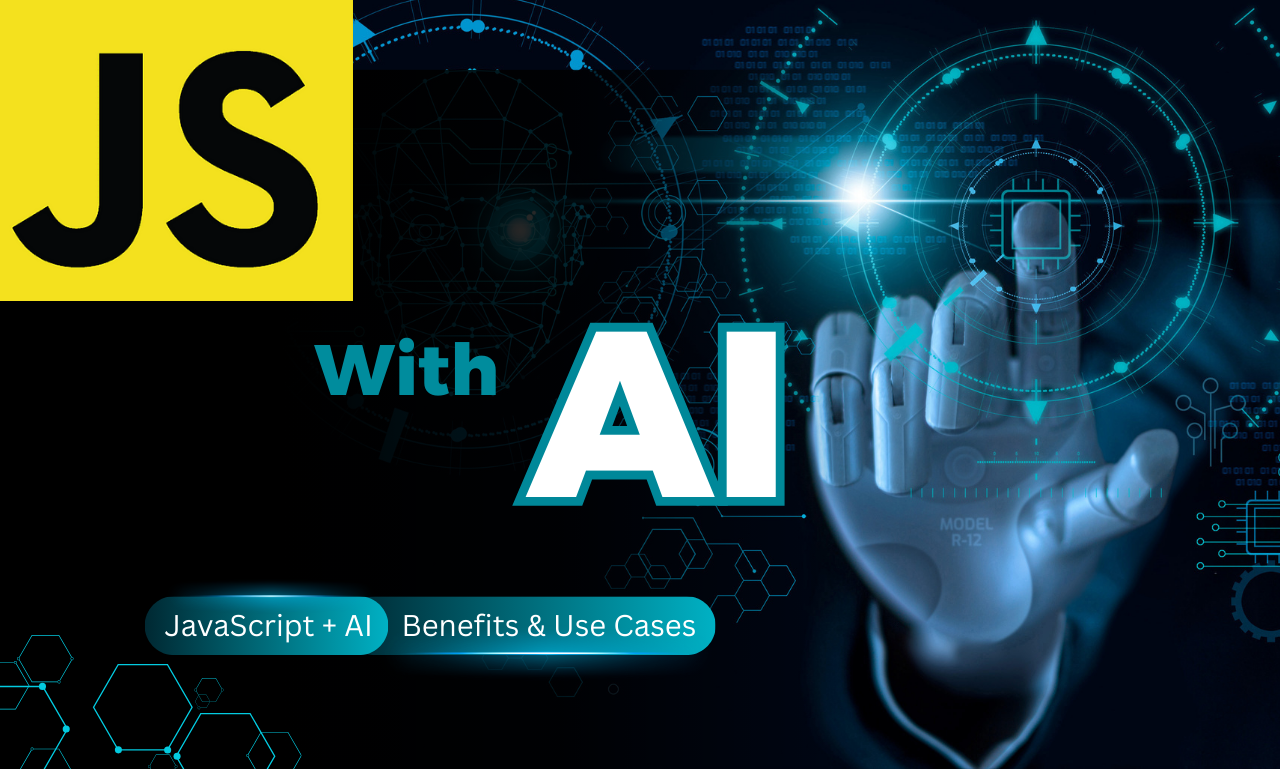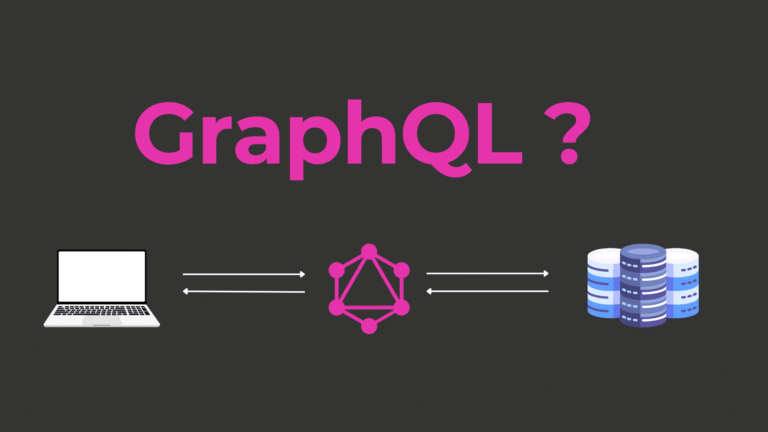JavaScript with AI Benefits & Use Cases

Introduction
Artificial intelligence (AI) is revolutionizing industries, enabling smarter applications, and automating complex processes. While Python and R have traditionally dominated AI development, JavaScript is emerging as a powerful tool for integrating AI into web applications. With its versatility, extensive ecosystem, and ability to run directly in browsers, JavaScript is making AI more accessible to developers worldwide. This article explores why JavaScript is a compelling choice for AI development, its benefits, and various use cases.
The Growing Role of AI in Modern Technology
AI is transforming the way businesses operate, enhancing automation, decision-making, and user interactions. From intelligent chatbots to advanced machine learning models, AI-driven solutions are being deployed across diverse industries. The demand for AI-powered applications is increasing, pushing developers to explore technologies that streamline AI integration. JavaScript, with its ubiquity and flexibility, is now playing a crucial role in AI advancements.
How JavaScript Has Evolved to Support AI Development
Initially designed for enhancing web interactivity, JavaScript has undergone significant transformations. The introduction of high-performance engines, Web Assembly, and AI-focused libraries has made it a viable option for developing AI applications. Today, JavaScript supports neural networks, real-time data processing, and deep learning frameworks, allowing developers to build intelligent applications without switching to a backend-heavy technology stack.
Key Advantages of Using JavaScript for AI
- Browser-Based AI Execution: JavaScript enables AI models to run directly in web browsers, reducing server dependency.
- Cross-Platform Support: AI applications built with JavaScript can run seamlessly on web, mobile, and even desktop environments.
- Robust Ecosystem: A vast collection of JavaScript libraries and frameworks simplifies AI development.
- Enhanced Performance: Optimizations in JavaScript engines like V8 have significantly improved execution speed.
Understanding JavaScript’s Strengths in AI Development
1. Why JavaScript Stands Out Among AI Programming Languages
While Python remains dominant in AI, JavaScript offers advantages such as easy deployment, real-time processing, and integration with web technologies. Its non-blocking nature allows AI applications to execute efficiently within user-friendly interfaces.
2. The Power of JavaScript’s Asynchronous and Event-Driven Nature
JavaScript’s asynchronous capabilities enable efficient handling of AI-related tasks, such as processing large datasets and running AI models without blocking the main thread. This is particularly useful for real-time applications like chatbots and voice assistants.
3. Cross-Platform Compatibility for AI-Powered Web and Mobile Apps
JavaScript enables developers to create AI-powered applications that work seamlessly across browsers, mobile devices, and even desktop applications via frameworks like Electron.js and React Native.
Popular JavaScript Libraries and Frameworks for AI

1. TensorFlow.js: Bringing Machine Learning to the Browser
TensorFlow.js allows developers to train and deploy machine learning models directly in browsers, enhancing accessibility and performance.
2. Brain.js: Simplifying Neural Networks in JavaScript
Brain.js provides an intuitive way to build AI models using simple JavaScript syntax, making neural network implementation easier for developers.
3. Synaptic.js: Building Custom AI Models with Ease
Synaptic.js offers a fully customizable neural network architecture, allowing developers to create AI models tailored to specific use cases.
4. ConvNetJS: Leveraging Deep Learning Without Dependencies
ConvNetJS provides a JavaScript-based framework for deep learning, eliminating the need for backend dependencies.
Real-World Applications of JavaScript in AI
1. AI-Powered Chatbots and Virtual Assistants
JavaScript-based chatbots enhance customer support, automate responses, and provide intelligent user interactions.
2. Predictive Analytics and Data Visualization
AI models in JavaScript enable real-time data processing and visualization, helping businesses make informed decisions.
3. Image and Speech Recognition in Web Applications
JavaScript supports computer vision and speech recognition, enabling features like facial authentication and voice commands.
4. Personalized Recommendations and User Behavior Analysis
JavaScript-powered AI models analyze user behavior to deliver personalized content and improve user engagement.
The Role of JavaScript in Machine Learning and Deep Learning
Training and Deploying AI Models in the Browser
JavaScript allows developers to train machine learning models within browsers, eliminating the need for server-based computation.
How JavaScript Handles Neural Networks Efficiently
Optimized JavaScript libraries enable efficient neural network processing, making AI models more responsive.
Running AI Models on Edge Devices for Real-Time Processing
JavaScript facilitates AI execution on edge devices, enabling real-time decision-making without relying on cloud infrastructure.
How JavaScript Enhances AI Development Efficiency
1. Faster Prototyping and Iteration for AI Models
JavaScript’s flexibility allows for rapid prototyping, accelerating AI model development and testing.
2. Reducing Dependency on Backend Processing
Running AI in browsers minimizes server load and enhances application speed and scalability.
3. Leveraging Web APIs for AI Integration
JavaScript integrates seamlessly with Web APIs, enabling AI-driven functionalities like speech synthesis and real-time translation.
Challenges of Using JavaScript for AI
1. Performance Limitations Compared to Traditional AI Languages
JavaScript’s execution speed, while improving, still lags behind languages like Python and C++ for complex AI tasks.
2. Memory Management and Computational Constraints
AI applications require significant computational resources, which can strain JavaScript’s memory management capabilities.
3. How to Overcome Common JavaScript AI Development Challenges
Optimizing JavaScript code, leveraging Web Assembly, and offloading heavy computations to Web Workers can mitigate performance issues.
Future of AI with JavaScript
1. The Growing Adoption of AI-Powered Web Applications
With the rise of AI-driven user experiences, JavaScript’s role in web-based AI applications is expanding rapidly.
2. Advancements in JavaScript AI Libraries and Tools
New AI-focused JavaScript frameworks and tools are continuously emerging, improving efficiency and performance.
3. The Role of JavaScript in the Democratization of AI
JavaScript makes AI more accessible to a broader audience, enabling developers of all skill levels to experiment with machine learning.
Conclusion
Recap of JavaScript’s AI Capabilities and Benefits
JavaScript’s ability to integrate AI into web applications, its ease of use, and its growing ecosystem make it a strong contender in AI development.
Encouraging Developers to Explore AI with JavaScript
With an expanding set of tools and frameworks, JavaScript is an excellent choice for developers looking to explore AI technologies.
Final Thoughts on the Future of AI Development in JavaScript
As JavaScript continues to evolve, its potential for AI applications will only grow, solidifying its place as a vital tool in AI-driven web development.



